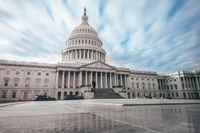As the world turns its attention to South Africa for the G20 Summit in November 2025, a high-level panel convened at the G20 Energy Transitions Working Group meeting in Cape Town on April 30, 2025, to tackle the pressing issue of financing energy efficiency initiatives, particularly in developing economies. Chaired by Rachel McCormick, Director General of International and Intergovernmental Affairs at Natural Resources Canada, the panel brought together energy and finance leaders from various organizations, including the African Development Bank, the United Nations Industrial Development Organisation (UNIDO), and South Africa’s GreenCape.
The main takeaway from this gathering was a clear consensus: while the ambition to improve energy efficiency is high, the investments required to make it happen are worryingly low. "Energy efficiency is not just a cost-saving intervention," McCormick emphasized. "It enhances our energy access, security, and also drives innovation across industry, transport, and households." This sentiment was echoed by Daniel Schroth from the African Development Bank, who pointed out that Africa's energy efficiency investments currently account for less than 3% of global funding. "In Sub-Saharan Africa, average per capita energy use is about what one refrigerator in the US consumes annually," he noted, underscoring the stark investment gap that needs to be addressed.
Schroth elaborated on the Bank’s initiatives to support countries like Senegal and Kenya through innovative financing models, such as on-bill financing and super ESCO structures, aimed at retrofitting public infrastructure and attracting private sector investments. Karin Reiss-Haimbala, Programme Manager at UNIDO, highlighted the necessity of creating demand-driven markets for energy-efficient products. "If there is a market, investments will scale," she stated, stressing the importance of aligning supply with consumer confidence to foster growth in energy efficiency.
From a European perspective, Denmark’s Louis Algren shared insights on how energy taxes and public-private partnerships have successfully decoupled economic growth from energy consumption. "Since 1990, Denmark has reduced energy use by 11% and emissions by 55%, while growing the economy," he said, reinforcing the idea that decoupling is not merely a theoretical concept but a policy-driven reality.
Mike Mulcahy, CEO of GreenCape, provided a local viewpoint, pointing out the challenges faced by small and mid-size firms in South Africa. "Many of them don’t know if they’ll be here in four years, so a four-year payback model doesn’t work," he explained. He advocated for bundling energy efficiency with solar and storage solutions as a critical strategy for these businesses.
As discussions at the summit progressed, several key themes emerged for further consideration: improving consumer confidence, incentivizing markets, deploying blended finance tools, and exploring innovative financing models like super ESCOs and utility-based on-bill financing. This focus on energy efficiency aligns with South Africa's broader G20 agenda, which aims to promote reconstruction of the global financial architecture, ensuring debt sustainability and affordable financing for development.
Meanwhile, the geopolitical landscape surrounding South Africa's G20 presidency is complex. Following Brazil’s presidency in 2024, South Africa is set to hand over the leadership to the United States in 2026. However, relations between the US and South Africa are currently strained, with the Trump administration having declared the South African Ambassador persona non grata and terminated assistance to the country. Questions regarding South Africa’s eligibility in the African Growth and Opportunity Act (AGOA) have also surfaced in the US Congress, with potential sanctions looming over several South African officials due to allegations of corruption and human rights abuses.
Despite these challenges, South Africa has made strides in strengthening its international relationships. The 8th EU-South Africa Summit held on March 13, 2025, marked a renewed commitment to enhance the strategic partnership based on democracy, human rights, and multilateralism. During the summit, the EU announced a €4.7 billion investment package under the Global Gateway initiative, aimed at clean energy and sustainable development.
Deputy President Paul Mashatile emphasized Africa’s strategic vision during the T20 Africa High-Level Policy Dialogue in Pretoria, highlighting the need for the continent to reshape global economic frameworks. He stated, "Africa is ours, and we must create the Africa we want," underscoring the importance of addressing economic development, political instability, and governance weaknesses. Mashatile's address also reiterated the significance of digitalization and emerging technologies as critical tools for African development.
Looking ahead, the G20 Summit will serve as a platform for South Africa to showcase its commitment to inclusive growth and sustainable development. The summit's theme, "Solidarity, Equality, and Sustainability," aligns with the country’s vision to tackle economic inequality, climate change, and fair trade practices. As the first African nation to host the G20, South Africa aims to highlight issues pertinent to the continent and beyond.
In preparation for the summit, South Africa is also enhancing its tourism infrastructure, with visa waivers for travelers from 132 countries and an efficient e-Visa system. The hosting of the G20 is expected to attract a significant influx of visitors, boosting the tourism sector and providing economic opportunities across various industries.
As the G20 Summit approaches, South Africa's role as a leader in global economic discussions is becoming increasingly vital. The country is not only advocating for the interests of the Global South but is also positioning itself as a key player in addressing global challenges. With a focus on energy efficiency, sustainable development, and international cooperation, South Africa’s presidency of the G20 could mark a turning point for African representation in global governance.


